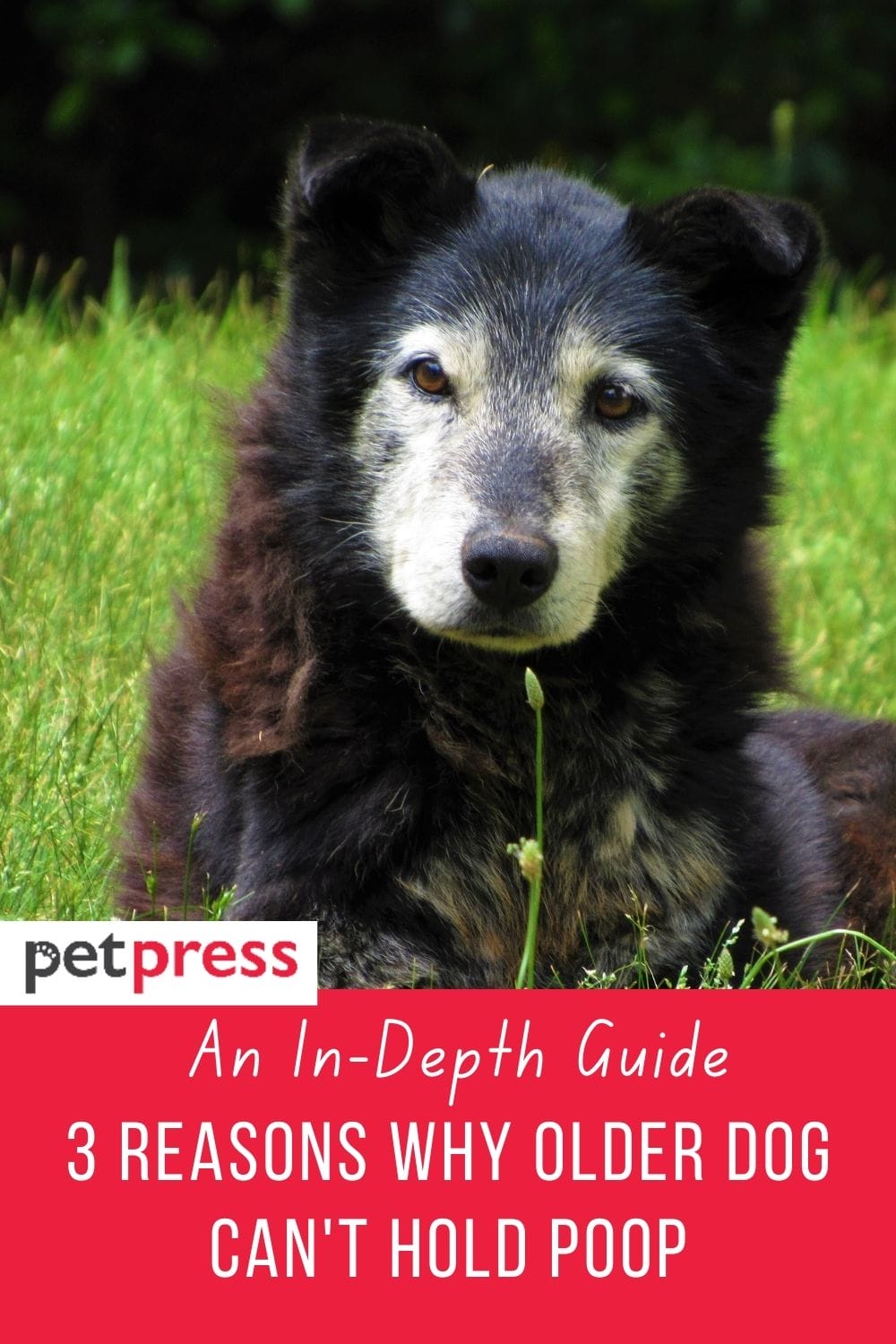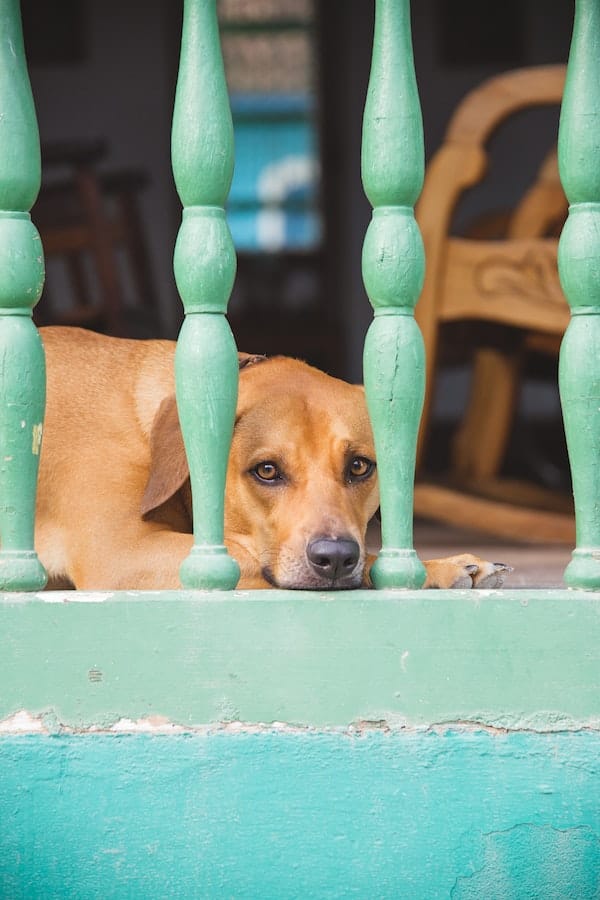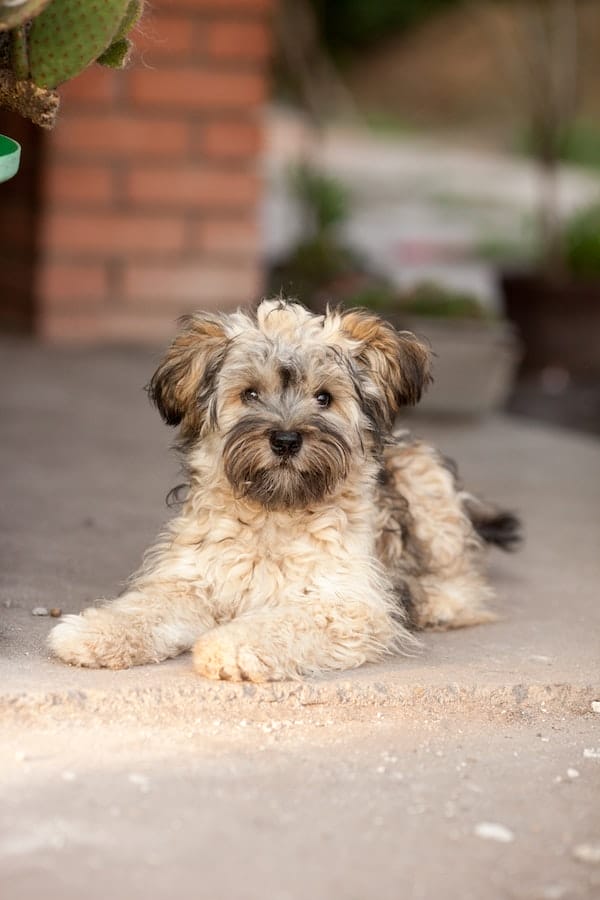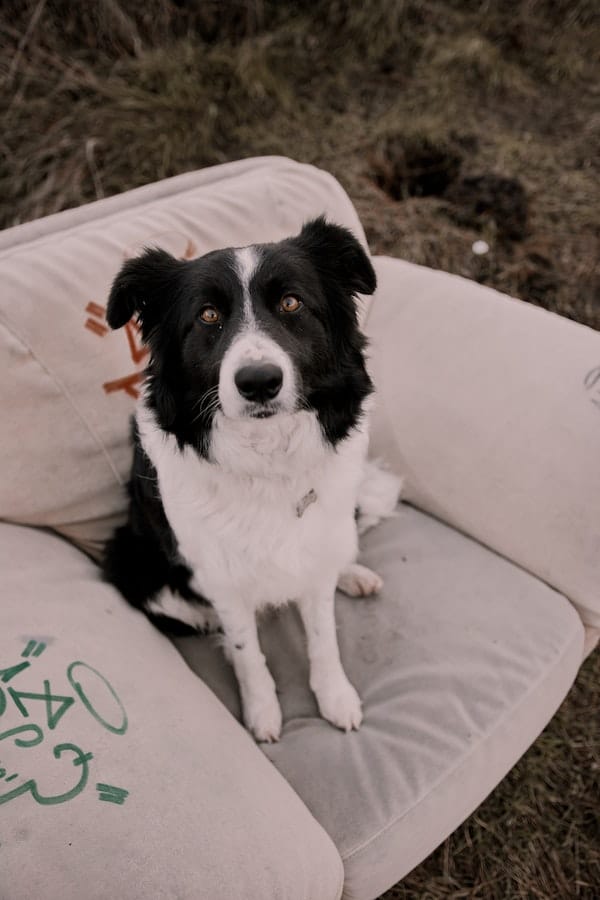
Isn’t it funny how your furry best friend’s golden years come with their own peculiar set of challenges?
One snag that gets many dog parents scratching their heads is when their aging pup starts having problems holding their poop.
You might be pondering, “How on earth did this happen?” or “Is there anything I can do to fix it?”
Well, grab a cup of coffee, and let’s get to the heart of this.
Why Can Older Dogs Not Hold Poop?
As dogs gracefully age, they, much like humans, undergo a series of physical transformations.
One of these changes may involve a loss of control over their bowels, leaving pet owners puzzled and concerned.
The culprit behind this situation often goes by the name of “canine fecal incontinence.”
This condition, while not uncommon among senior dogs, can be attributed to a variety of factors.
Muscle weakness
Just as our muscles may lose some of their vigor with time, dogs’ muscles can also weaken.
This includes the muscles responsible for controlling bowel movements.
Think of it as a canine equivalent of our grandparents needing a bit of assistance with everyday tasks.
Neurological issues
Sometimes, it’s the nervous system that takes a hit.
Neurological problems can disrupt the signals that control when and where a dog relieves itself, leading to unexpected accidents.
It’s like a miscommunication within the body.
Gastrointestinal problems
Digestive troubles can also play a role.
Conditions affecting the gastrointestinal system can lead to unpredictable bowel movements. It’s akin to when we experience tummy troubles as we age.

Typical Signs of Incontinence in Older Dogs
Detecting signs of fecal incontinence in older dogs requires a watchful eye.
These indicators can manifest in various ways, much like our own discomforts during physical distress.
Here are some typical signs to look out for:
- Unexpected stool sightings: You might discover small amounts of stool in places where your dog usually rests, indicating accidents have occurred.
- Frequent accidents: Another sign is a pattern of accidents throughout the day. Your dog may struggle to control their bowel movements, much like us having a series of mishaps when we’re unwell.
- Straining to poop: Your dog may appear to exert extra effort when trying to relieve themselves. This training can be a telltale sign of fecal incontinence, akin to our own struggles when we’re not feeling our best.
- Loss of appetite: Just like when we experience a stomach ache and lose our appetite, dogs facing fecal incontinence might also exhibit a decreased interest in food.
What to Do If Your Old Dog Can’t Hold Poop

When faced with the challenge of your old dog struggling to hold their poop, it’s essential to approach the situation with a composed mindset, much like a concerned parent addressing their child’s health issues.
Here’s a step-by-step guide on what to do:
Stay calm
Staying calm is absolutely crucial when your furry friend faces health issues.
Just like in human emergencies, panicking won’t do any good and can actually exacerbate your dog’s stress.
Dogs are incredibly attuned to our emotions, and a calm demeanor can help reassure them during tough times.
Consult your vet
Hit up your vet Your vet isn’t just a vet.
They’re like your dog’s personal guru, ready to guide you through the rocky roads of dog health issues.
Keep in mind, that these folks are well-versed in conducting thorough check-ups and whipping up a crystal-clear diagnosis.
They’ll then adjust their recommendations according to your dog’s unique needs – maybe some tweaks in the diet, certain medications, or even other treatments.
Consider doggy diapers
Give doggy diapers a thought Now, we know what you’re thinking – “Doggy diapers? Really?”
But sometimes, these can be a pretty handy band-aid solution, as per your vet’s advice.
Think of it like a kiddo graduating from diapers to underwear – it’s a transitional tool to help manage your dog’s condition as you and your vet work on a more long-term solution.
It offers your dog some extra “padding” and also makes life a bit easier for you.
Modify the living environment
Tweak your dog’s digs as your dog enters the golden years, their needs can change a bit.
A few changes around their hangout spots can make a world of difference.
Slip in some washable rugs or dog-friendly flooring.
It’s easier to clean up any messes and reduces the risk of your pal taking a tumble. It’s like turning their crib into a cozy, secure, senior-friendly space.
Maintaining regular vet visits
Ensuring quick and easy access to outdoor areas is crucial for older dogs, especially when it comes to bathroom breaks.
Consider installing a doggy door or providing a ramp to help them navigate any stairs or obstacles.
These changes can make a significant difference in their daily routine and overall quality of life.

Wrapping Things Up
When you’re facing a situation where your dog can’t control their bowels, it can feel a bit like climbing Mount Everest.
But hey, remember, your old buddy isn’t doing this for kicks.
It’s just a part of them getting on in years—kinda like us finding a new grey hair or hearing our knees creak a bit more than they used to.
With a dash of patience, a pinch of understanding, and the right advice from your trusty vet, you’ll be navigating these murky waters like a seasoned sailor.
FAQs
Just like us humans, dogs can have ‘off’ days too. If this is a one-off incident, it might not be a cause for worry. But if it’s a recurring issue, your dog might be suffering from fecal incontinence.
Absolutely! Just as we might reach for a banana when constipated, the right diet can help your dog. Your vet may recommend a high-fiber diet to help control your dog’s bowel movements.
Yes, there are. Much like we have medicine for our aches and pains, there are medications your vet can prescribe to manage your dog’s fecal incontinence.
Indeed! Regular exercise can help maintain muscle tone, including the muscles involved in bowel control. It’s like going for a jog to keep our hearts healthy – the same principle applies to our four-legged friends.


GIPHY App Key not set. Please check settings